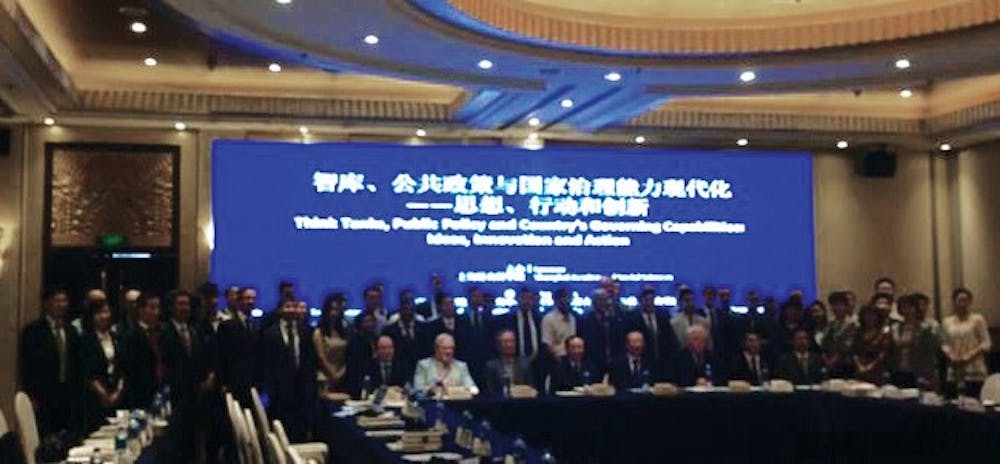China closed out the month of June by holding its first think tank summit.
The conference was co-hosted by Penn’s Think Tank and Civil Societies Programs and the Shanghai Academy for Social Sciences in Shanghai, from June 25 to 26.
Think tanks are research organizations that examine political and social policies. Because many Chinese think tanks are state-funded, however, they currently play a much closer role with government policy than they would in most other countries.
“In the US, where think tanks can be contacted for consultation with the government, think tanks in China really do play a direct role in giving all the information necessary to legislate policy,” rising College junior Stephanie Herrmann said. “That very direct connection not only sheds new light on how the Chinese government’s structure works, but also on how think tanks are actually integral to developing law.”
The goal of the summit was “to offer both internal and external perspectives on how to improve the profile and efficiency of China’s think tank system,” said Herrmann, who is also an intern for both SASS and TTCSP. The conference was attended by 28 Chinese think tanks and 24 other organizations representing 15 countries. There were three panels; two related to generally improving think tanks around the world, while the third was China-specific.
Much of this discussion was focused on steering away from a solely government-affiliated think tank system and expanding to more universities and independent institutions.
“This was designed to serve as a catalyst to stir the think tanks, and part of the reason for having the meeting was to have all of the think tanks in China to think about other ways that were less government controlled that are critical if China is to effectively deal with the many policy challenges it faces,” Director of TTCSP and Senior Lecturer in International Studies at the Lauder Institute James McGann said. “Motivation [came from] an array of policy problems, and they have a limited, narrow set of institutions that are providing advice, and they understand that they need the greater policy innovation and diplomatic advice to grapple with the fundamental policy changes they face.”
Overall, the conference was considered a success that exceeded expectations, according to McGann.
“[The think tanks] were focusing on sharing their experiences so that China might benefit from that, and that was key and pretty dramatic. Again, that many institutions coming together in China, to discuss freely a range of options was pretty extraordinary,” said McGann. “And a very short period of time ago — just four or five years ago — that was not possible. So to me, it was really exceptional that this took place and that there was fairly free-flowing discussion about this critical issue.”
Unlike the summit, however, conversations are far from over.
“Broad partnerships have been forged with the leading think tanks in China that will continue. It was the major output of the meeting,” McGann said, referring to the new collaborative partnerships between Penn and organizations such as the Development Research Center of the State Council in Beijing.
“Main viewpoints of participant presentations and discussions will also be summarized for policy recommendations,” said Iris Jin, an associate research professormade lowercase since the the title is after the name at the Shanghai Academy of Social Sciences, in an email. “At the same time, we hope to hold the China Think Tank Summit every year and build it into a platform for think tanks all over the world to interact with each other and to network for further cooperation.”



